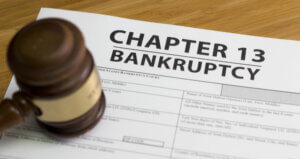Bankruptcy has become a serious problem in the time of COVID-19. Keep reading to learn more about the types of bankruptcies here.
Bankruptcies are back in full force. Nearly 500,000 Americans have filed for bankruptcy with the federal courts in 2021.
The pandemic has not helped matters. If you are facing economic strain due to the pandemic, you need to consider the different types of bankruptcies. Each has its own benefits and shortcomings.
What are the main types of bankruptcies, and what distinguishes each one? What should business owners do to pay their debts off, even during the pandemic? What acts of legislation have impacted bankruptcy proceedings?
Here is a quick guide to help you answer these questions so you can decide the best way to pay off your debts.
Types of Bankruptcies
Chapter 7 Bankruptcy
Chapter 7 bankruptcy is a form of liquidation bankruptcy. This means that a court will appoint a trustee to gather your assets together and sell them. The court can discharge whatever debts your assets cannot cover.
You will have to give up many assets. You can keep certain personal belongings, including family heirlooms. A court may regard your home and car as exempt from liquidation, though you may need to make a case for yourself.
The advantage of Chapter 7 is that it is fast. You may be able to get through the process in less than six months. It is the best form of bankruptcy for people who do not have a consistent income and have large debts.
Bankruptcy courts carefully regulate Chapter 7 applicants. You can choose Chapter 7 if your income is below the median income of your state. You can also examine the Chapter 7 bankruptcy income limit to see if you qualify.
You may be able to choose it after you pass a means test. The test examines your income, personal expenses, and family size. If you have enough income to pay off your debts, you will pass the test.
The pandemic has not significantly disrupted Chapter 7 proceedings. You still need to apply with the help of a bankruptcy lawyer.
Chapter 11 Bankruptcy
Chapter 11 bankruptcy is about reorganization. You will restructure your financial assets and then create a plan to pay back the people you owe. If you have a business, you need to come up with a new business plan in order to do so.
Your plan must receive official court approval. A trustee will supervise your plan and make sure you or your business have the resources to complete it. After your plan has finished, the bankruptcy ends and the court discharges your lingering debts.
Chapter 11 is straightforward in principle, but it can be difficult in practice. It may take years for you to execute your plan. It may also take time for you to adjust business operations and work out negotiations with your creditors.
Chapter 11 tends to work best if you are a business owner. Individuals can apply for it, but Chapter 7 produces quicker solutions for people with personal debts.
The process of filing for Chapter 11 has not changed due to the pandemic. But it may become harder to execute a repayment plan.
You should talk to your creditors and the court if you are running into problems. You may be able to shift business operations so you make money while working remotely.
Chapter 13 Bankruptcy
Chapter 13 is another means of reorganization, but it is specific to individuals. Someone who has a regular job with a steady income can pursue Chapter 13.
You will need to submit a plan to pay off your debts to the court. A trustee will examine your plan and then take control of it. You will pay the trustee, and the trustee will then pay your creditors for you.
You may not be expected to pay off all of your debts. Secured debts like taxes must be paid in full. But unsecured debts like medical bills may be partially paid, though you should still try to pay them off.
Once you complete your plan, the court will dismiss your remaining debts. Your plan may take a few years to execute. You must have a consistent revenue stream the entire time you are under your plan.
The pandemic may complicate your personal payment plan. If you want to pursue Chapter 13, you should talk to a financial advisor about what to do if you lose your job or make less money.
COVID-19 Bankruptcy Relief Extension Act of 2021
The COVID-19 Bankruptcy Relief Extension Act of 2021 may affect your bankruptcy proceedings. The bill excludes federal relief payments from being considered as part of your income.
It also raises the debt eligibility for businesses applying for a streamlined process under Chapter 11. A business with up to $7.5 million in debt can ask for an expedited process. Relief payments do not count toward a business’s disposal income either.
The bill applies until March 27, 2022. The removal of aid payments from your income means you may be able to qualify for Chapter 7.
You should talk to a bankruptcy lawyer and financial advisor about your rights and options. You should also work quickly, as Congress may not extend these provisions for another year.
How COVID-19 Affects the Different Types of Bankruptcies
Understanding the different types of bankruptcies is always difficult. Chapter 7 provides liquidation bankruptcy to individuals while Chapter 11 is for business owners. Chapter 13 allows an individual to reorganize their assets into a payment plan.
The pandemic has made things more complicated, so repayment plans under Chapter 11 and 13 may be more difficult to achieve.
The government has passed legislation so your stimulus checks do not count as disposable income, but the benefits from this legislation will expire soon.
Move quickly and get help from an Omaha bankruptcy lawyer at Husker Law. Contact us today at 402-415-2525.






